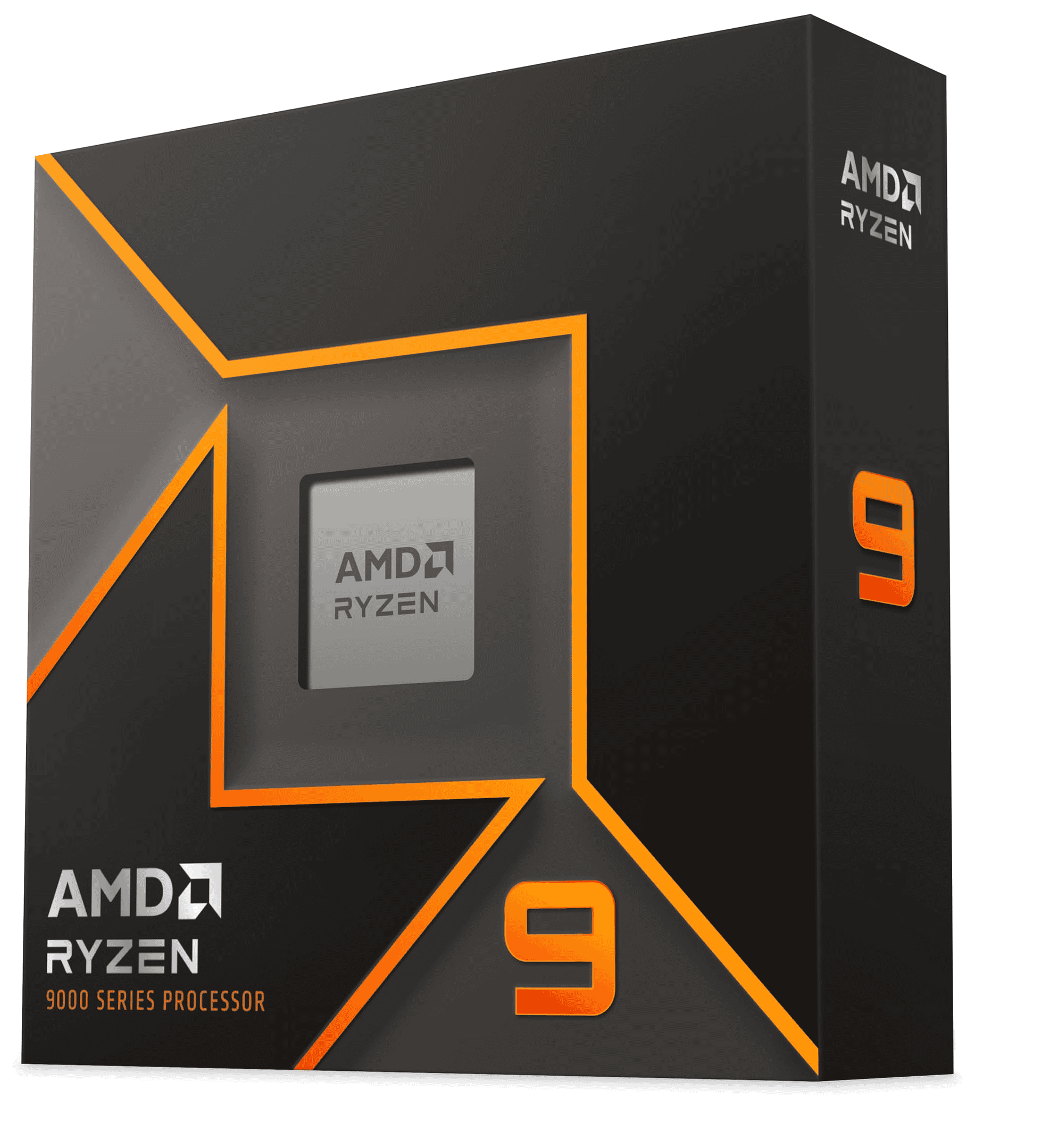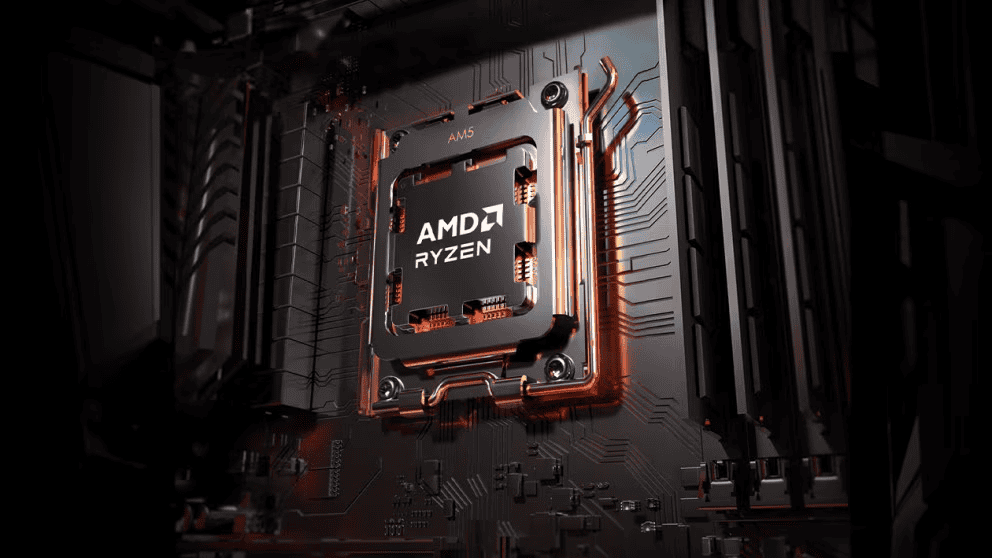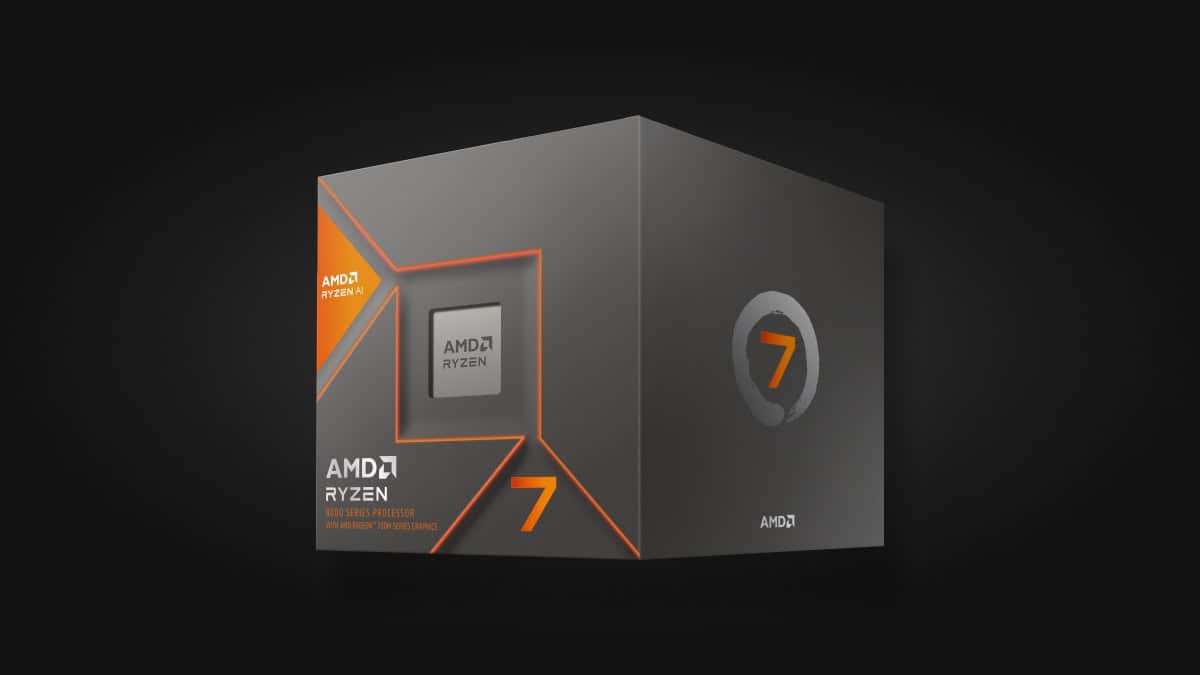AMD Ryzen processors have revolutionized the CPU market since their debut in 2017. These chips offer impressive performance for desktop PCs across a wide range of applications. AMD’s Ryzen lineup spans from entry-level Ryzen 3 models to high-end Ryzen 9 and Threadripper processors, catering to diverse user needs and budgets.
The Ryzen series is built on AMD’s Zen microarchitecture. This design enables high core counts and thread counts even in consumer-grade CPUs. Ryzen chips deliver strong multi-threaded performance for tasks like video editing and 3D rendering. They also provide competitive single-threaded speeds for gaming and everyday computing.
AMD updates its Ryzen lineup regularly with new generations. Each new series brings improvements in performance, efficiency, and features. Recent Ryzen CPUs have closed the gap with Intel in gaming. They often lead in productivity benchmarks thanks to their core count advantage.

AMD Ryzen CPU List
| Name | Core Count | Performance Core Clock | Performance Core Boost Clock | Class | TDP |
|---|---|---|---|---|---|
| AMD Ryzen 9 9950X | 16 | 4.3 GHz | 5.7 GHz | Zen 5 | 170 W |
| AMD Ryzen 7 9700X | 8 | 3.8 GHz | 5.5 GHz | Zen 5 | 65 W |
| AMD Ryzen 9 9900X | 12 | 4.4 GHz | 5.6 GHz | Zen 5 | 120 W |
| AMD Ryzen 5 9600X | 6 | 3.9 GHz | 5.4 GHz | Zen 5 | 65 W |
| AMD Ryzen 7 7800X3D | 8 | 4.2 GHz | 5 GHz | Zen 4 | 120 W |
| AMD Ryzen 5 7600X | 6 | 4.7 GHz | 5.3 GHz | Zen 4 | 105 W |
| AMD Ryzen 7 7700X | 8 | 4.5 GHz | 5.4 GHz | Zen 4 | 105 W |
| AMD Ryzen 5 7600 | 6 | 3.8 GHz | 5.1 GHz | Zen 4 | 65 W |
| AMD Ryzen 9 7950X3D | 16 | 4.2 GHz | 5.7 GHz | Zen 4 | 120 W |
| AMD Ryzen 9 7900X | 12 | 4.7 GHz | 5.6 GHz | Zen 4 | 170 W |
| AMD Ryzen 9 7900X3D | 12 | 4.4 GHz | 5.6 GHz | Zen 4 | 120 W |
| AMD Ryzen 5 7500F | 6 | 3.7 GHz | 5 GHz | Zen 4 | 65 W |
| AMD Ryzen 9 7950X | 16 | 4.5 GHz | 5.7 GHz | Zen 4 | 170 W |
| AMD Ryzen 7 7700 | 8 | 3.6 GHz | 5.3 GHz | Zen 4 | 65 W |
| AMD Ryzen 5 8500G | 6 | 4.1 GHz | 5 GHz | Zen 4 | 65 W |
| AMD Ryzen 5 8600G | 6 | 4.3 GHz | 5 GHz | Zen 4 | 65 W |
| AMD Ryzen 7 8700G | 8 | 4.2 GHz | 5.1 GHz | Zen 4 | 65 W |
| AMD Ryzen 5 7600X3D | 6 | 4.1 GHz | 4.7 GHz | Zen 4 | 65 W |
| AMD Ryzen 5 7500F | 6 | 3.7 GHz | 5 GHz | Zen 4 | 65 W |
| AMD Ryzen 9 7900 | 12 | 3.6 GHz | 5.4 GHz | Zen 4 | 65 W |
| AMD Ryzen 5 8400F | 6 | 4.2 GHz | 4.7 GHz | Zen 4 | 65 W |
| AMD Ryzen 7 8700F | 8 | 4.1 GHz | 5 GHz | Zen 4 | 65 W |
| AMD Ryzen 5 7600X3D | 6 | 4.1 GHz | 4.7 GHz | Zen 4 | 65 W |
| AMD Ryzen 9 PRO 7945 | 12 | 3.7 GHz | 5.4 GHz | Zen 4 | 65 W |
| AMD Ryzen 5 PRO 7645 | 6 | 3.8 GHz | 5.1 GHz | Zen 4 | 65 W |
| AMD Ryzen 7 PRO 7745 | 8 | 3.8 GHz | 5.3 GHz | Zen 4 | 65 W |
| AMD Ryzen 7 PRO 7745 | 8 | 3.8 GHz | 5.3 GHz | Zen 4 | 65 W |
| AMD Ryzen 5 5600X | 6 | 3.7 GHz | 4.6 GHz | Zen 3 | 65 W |
| AMD Ryzen 5 5600 | 6 | 3.5 GHz | 4.4 GHz | Zen 3 | 65 W |
| AMD Ryzen 7 5800X | 8 | 3.8 GHz | 4.7 GHz | Zen 3 | 105 W |
| AMD Ryzen 5 5500 | 6 | 3.6 GHz | 4.2 GHz | Zen 3 | 65 W |
| AMD Ryzen 7 5700X3D | 8 | 3 GHz | 4.1 GHz | Zen 3 | 105 W |
| AMD Ryzen 7 5700X | 8 | 3.4 GHz | 4.6 GHz | Zen 3 | 65 W |
| AMD Ryzen 9 5900X | 12 | 3.7 GHz | 4.8 GHz | Zen 3 | 105 W |
| AMD Ryzen 7 5800X3D | 8 | 3.4 GHz | 4.5 GHz | Zen 3 | 105 W |
| AMD Ryzen 5 5600G | 6 | 3.9 GHz | 4.4 GHz | Zen 3 | 65 W |
| AMD Ryzen 9 5950X | 16 | 3.4 GHz | 4.9 GHz | Zen 3 | 105 W |
| AMD Ryzen 7 5700G | 8 | 3.8 GHz | 4.6 GHz | Zen 3 | 65 W |
| AMD Ryzen 5 5600GT | 6 | 3.6 GHz | 4.6 GHz | Zen 3 | 65 W |
| AMD Ryzen 5 5500GT | 6 | 3.6 GHz | 4.4 GHz | Zen 3 | 65 W |
| AMD Ryzen 7 5800XT | 8 | 3.8 GHz | 4.8 GHz | Zen 3 | 105 W |
| AMD Ryzen 9 5900XT | 16 | 3.3 GHz | 4.8 GHz | Zen 3 | 105 W |
| AMD Ryzen 7 5700 | 8 | 3.7 GHz | 4.6 GHz | Zen 3 | 65 W |
| AMD Ryzen 5 5600X3D | 6 | 3.3 GHz | 4.4 GHz | Zen 3 | 105 W |
| AMD Ryzen 5 3600 | 6 | 3.6 GHz | 4.2 GHz | Zen 2 | 65 W |
| AMD Ryzen 7 3700X | 8 | 3.6 GHz | 4.4 GHz | Zen 2 | 65 W |
| AMD Ryzen 5 4500 | 6 | 3.6 GHz | 4.1 GHz | Zen 2 | 65 W |
| AMD Ryzen 3 4100 | 4 | 3.8 GHz | 4 GHz | Zen 2 | 65 W |
| AMD Ryzen 5 4600G | 6 | 3.7 GHz | 4.2 GHz | Zen 2 | 65 W |
| AMD Ryzen 5 3600X | 6 | 3.8 GHz | 4.4 GHz | Zen 2 | 95 W |
| AMD Ryzen 9 3900X | 12 | 3.8 GHz | 4.6 GHz | Zen 2 | 105 W |
| AMD Ryzen 7 3800X | 8 | 3.9 GHz | 4.5 GHz | Zen 2 | 105 W |
| AMD Ryzen 3 3100 | 4 | 3.6 GHz | 3.9 GHz | Zen 2 | 65 W |
| AMD Ryzen 9 3950X | 16 | 3.5 GHz | 4.7 GHz | Zen 2 | 105 W |
| AMD Ryzen 5 3600 | 6 | 3.6 GHz | 4.2 GHz | Zen 2 | 65 W |
| AMD Ryzen 7 3700X | 8 | 3.6 GHz | 4.4 GHz | Zen 2 | 65 W |
| AMD Ryzen 5 3500X | 6 | 3.6 GHz | 4.1 GHz | Zen 2 | 65 W |
| AMD Ryzen 9 3950X | 16 | 3.5 GHz | 4.7 GHz | Zen 2 | 105 W |
| AMD Ryzen 9 3900XT | 12 | 3.8 GHz | 4.7 GHz | Zen 2 | 105 W |
| AMD Ryzen 5 3600XT | 6 | 3.8 GHz | 4.5 GHz | Zen 2 | 95 W |
| AMD Ryzen 5 3500 | 6 | 3.6 GHz | 4.1 GHz | Zen 2 | 65 W |
| AMD Ryzen 3 3300X | 4 | 3.8 GHz | 4.3 GHz | Zen 2 | 65 W |
| AMD Ryzen 7 3800XT | 8 | 3.9 GHz | 4.7 GHz | Zen 2 | 105 W |
| AMD Ryzen 5 3600 | 6 | 3.6 GHz | 4.2 GHz | Zen 2 | 65 W |
| AMD Ryzen 9 3900X | 12 | 3.8 GHz | 4.6 GHz | Zen 2 | 105 W |
| AMD Ryzen 7 3800X | 8 | 3.9 GHz | 4.5 GHz | Zen 2 | 105 W |
| AMD Ryzen 5 3600 | 6 | 3.6 GHz | 4.2 GHz | Zen 2 | 65 W |
| AMD Ryzen 5 3600X | 6 | 3.8 GHz | 4.4 GHz | Zen 2 | 95 W |
| AMD Ryzen 9 3900 | 12 | 3.1 GHz | Zen 2 | 65 W | |
| AMD Ryzen 5 2600 | 6 | 3.4 GHz | 3.9 GHz | Zen+ | 65 W |
| AMD Ryzen 3 3200G | 4 | 3.6 GHz | 4 GHz | Zen+ | 65 W |
| AMD Ryzen 7 2700X | 8 | 3.7 GHz | 4.3 GHz | Zen+ | 105 W |
| AMD Ryzen 5 3400G | 4 | 3.7 GHz | 4.2 GHz | Zen+ | 65 W |
| AMD Ryzen 5 2600X | 6 | 3.6 GHz | 4.2 GHz | Zen+ | 95 W |
| AMD Ryzen 5 1600 (12nm) | 6 | 3.2 GHz | 3.6 GHz | Zen+ | 65 W |
| AMD Ryzen 7 2700 | 8 | 3.2 GHz | 4.1 GHz | Zen+ | 65 W |
| AMD Ryzen 3 3200G | 4 | 3.6 GHz | 4 GHz | Zen+ | 65 W |
| AMD Ryzen 5 2600 | 6 | 3.4 GHz | 3.9 GHz | Zen+ | 65 W |
| AMD Ryzen 3 1200 (12nm) | 4 | 3.1 GHz | 3.4 GHz | Zen+ | 65 W |
| AMD Ryzen 5 2600X | 6 | 3.6 GHz | 4.2 GHz | Zen+ | 95 W |
| AMD Ryzen 5 3400G | 4 | 3.7 GHz | 4.2 GHz | Zen+ | 65 W |
| AMD Ryzen 7 2700 | 8 | 3.2 GHz | 4.1 GHz | Zen+ | 65 W |
| AMD Ryzen 3 1200 (12nm) | 4 | 3.1 GHz | 3.4 GHz | Zen+ | 65 W |
| AMD Ryzen 3 2200G | 4 | 3.5 GHz | 3.7 GHz | Zen | 65 W |
| AMD Ryzen 7 1700 | 8 | 3 GHz | 3.7 GHz | Zen | 65 W |
| AMD Ryzen 3 1200 (14nm) | 4 | 3.1 GHz | 3.4 GHz | Zen | 65 W |
| AMD Ryzen 5 2400G | 4 | 3.6 GHz | 3.9 GHz | Zen | 65 W |
| AMD Ryzen 5 1600 (14nm) | 6 | 3.2 GHz | 3.6 GHz | Zen | 65 W |
| AMD Ryzen 5 1600X | 6 | 3.6 GHz | 4 GHz | Zen | 95 W |
| AMD Ryzen 7 1700X | 8 | 3.4 GHz | 3.8 GHz | Zen | 95 W |
| AMD Ryzen 5 1400 | 4 | 3.2 GHz | 3.4 GHz | Zen | 65 W |
| AMD Ryzen 7 1800X | 8 | 3.6 GHz | 4 GHz | Zen | 95 W |
| AMD Ryzen 5 1500X | 4 | 3.5 GHz | 3.7 GHz | Zen | 65 W |
| AMD Ryzen 3 1300X | 4 | 3.5 GHz | 3.7 GHz | Zen | 65 W |
| AMD Ryzen 7 1700X | 8 | 3.4 GHz | 3.8 GHz | Zen | 95 W |
| AMD Ryzen 5 2400G | 4 | 3.6 GHz | 3.9 GHz | Zen | 65 W |
| AMD Ryzen 3 2200G | 4 | 3.5 GHz | 3.7 GHz | Zen | 65 W |
| AMD Ryzen 7 1800X | 8 | 3.6 GHz | 4 GHz | Zen | 95 W |
| AMD Ryzen 7 1800X | 8 | 3.6 GHz | 4 GHz | Zen | 95 W |
Key Takeaways
- AMD Ryzen CPUs offer strong performance across various price points
- Ryzen processors use Zen architecture for high core and thread counts
- New Ryzen generations bring regular improvements in speed and efficiency
Exploring AMD Ryzen Processor Series
AMD Ryzen processors offer a range of options for different computing needs. The series includes models suited for budget builds, high-performance gaming, and professional workstations.
Ryzen 3 Series
Ryzen 3 processors target budget-conscious users. These CPUs feature four cores and support multitasking for everyday computing tasks. The AMD Ryzen 3 1200 was an early model in this line. It used the AM4 socket and supported DDR4 memory.
Later, the Ryzen 3 2200G added integrated graphics. This feature made it a good choice for basic gaming setups without a separate graphics card. Ryzen 3 CPUs typically have lower Thermal Design Power (TDP) ratings. This makes them suitable for smaller or more power-efficient systems.
Ryzen 5 Series

Ryzen 5 processors balance performance and affordability. Most models in this series have six cores. The Ryzen 5 5600X is a popular choice for mid-range gaming PCs. It offers strong single-threaded performance, which is important for many games.
The Ryzen 5 5600G includes integrated graphics. This feature can be useful for systems that don’t need a powerful discrete GPU. Other models like the Ryzen 5 5500 and 4500 provide options at different price points. All Ryzen 5 CPUs support PCIe 4.0, allowing for faster data transfer with compatible devices.
Ryzen 7 Series
Ryzen 7 processors target enthusiasts and content creators. These CPUs usually have eight cores and excel at multitasking. The Ryzen 7 5800X is a strong performer for both gaming and productivity tasks.
For users who need integrated graphics, the Ryzen 7 5700G is an option. It combines CPU and GPU functions in one package. A standout model is the Ryzen 7 7800X3D. This CPU uses AMD’s 3D V-Cache technology to boost gaming performance.
Ryzen 7 processors support Simultaneous Multithreading (SMT). This feature allows each core to handle two threads at once, improving performance in multi-threaded workloads.
Ryzen 9 Series

Ryzen 9 represents AMD’s high-end consumer processors. These CPUs boast high core counts and are designed for demanding tasks. The Ryzen 9 5950X, with 16 cores and 32 threads, is a powerhouse for multi-threaded workloads.
The Ryzen 9 5900X offers 12 cores and is popular among enthusiasts for high-end gaming and content creation. These processors excel at tasks like video editing, 3D rendering, and running complex simulations.
Earlier models like the Ryzen 9 3900X helped establish AMD as a strong competitor in the high-performance CPU market. Ryzen 9 CPUs often have higher TDP ratings due to their increased performance capabilities.
Generational Advancements
AMD has released several generations of Ryzen processors. Each new series brought improvements in performance and features. The Ryzen 1000 series introduced the Zen architecture. Ryzen 2000 refined the design with better clock speeds and power efficiency.
Ryzen 3000 marked a significant leap with the move to 7nm manufacturing. This allowed for higher core counts and improved performance per watt. The Ryzen 4000 series mainly focused on mobile processors.
The Ryzen 5000 series introduced the Zen 3 architecture. It brought major improvements in instructions per clock (IPC) and gaming performance. Later models in this generation added 3D V-Cache technology for even better gaming results.
Ryzen Threadripper Series
Ryzen Threadripper processors are designed for professional workstations and extreme multitasking. These CPUs offer very high core counts, with some models featuring 64 cores and 128 threads.
Threadripper processors use a different socket than mainstream Ryzen CPUs. They also support more PCIe lanes and quad-channel memory. This makes them ideal for tasks that require massive parallel processing power.
Common uses for Threadripper CPUs include 3D rendering, scientific simulations, and complex data analysis. While these processors are very powerful, they’re overkill for most consumer applications. Their high TDP ratings also require robust cooling solutions.

FAQs
Which Ryzen processor is best?
The “best” Ryzen processor depends heavily on your needs and budget. For sheer gaming performance, the Ryzen 7 7800X3D is a top contender, offering excellent value for its price. If you need a powerful workstation CPU for content creation or heavy multitasking, the Ryzen 9 7950X3D is an excellent choice, though it comes at a premium.
What are the levels of AMD Ryzen processors?
AMD Ryzen processors are categorized into different tiers to indicate their performance and target audience. From entry-level to high-end, the tiers include:
- Ryzen 3: Budget-friendly processors suitable for everyday computing and light gaming.
- Ryzen 5: Mid-range processors offering a good balance of performance for gaming and productivity.
- Ryzen 7: High-performance processors designed for demanding gaming and content creation.
- Ryzen 9: Enthusiast-grade processors delivering top-of-the-line performance for heavy workloads and professional applications.
- Ryzen Threadripper: Extreme performance processors with a massive number of cores and threads, ideal for professional content creators and power users.
What is the latest Ryzen series?
As of September 2024, the latest Ryzen series is the Ryzen 7000 series, built on the Zen 4 architecture. These processors utilize the AM5 socket and support the latest technologies like DDR5 memory and PCIe 5.0.
What is the current generation of Ryzen processors?
The current generation of Ryzen processors is the 7000 series, released in late 2022. These processors represent AMD’s latest advancements in performance and efficiency, catering to a wide range of users from casual gamers to professional content creators.

Which is better, AMD Ryzen or Intel?
The “better” choice between AMD Ryzen and Intel depends on your specific needs and priorities. Ryzen processors generally offer better multi-core performance and value for money, making them ideal for multitasking and content creation. Intel processors tend to have a slight edge in single-core performance, which can be beneficial for gaming and lightly-threaded applications. It’s recommended to compare specific models and benchmarks based on your intended use case before making a decision.
Is Ryzen 7 better than the i7?
Whether a Ryzen 7 is better than an i7 depends on the specific models being compared and the intended use case. In general, Ryzen 7 processors offer competitive performance to Intel’s i7 lineup, often at a lower price point. Ryzen 7 excels in multi-core performance, making it suitable for content creation and multitasking. However, certain i7 models might have a slight advantage in single-core performance, which can be important for gaming and some applications. It’s crucial to research and compare specific models and benchmarks before deciding which one is better for your needs.







